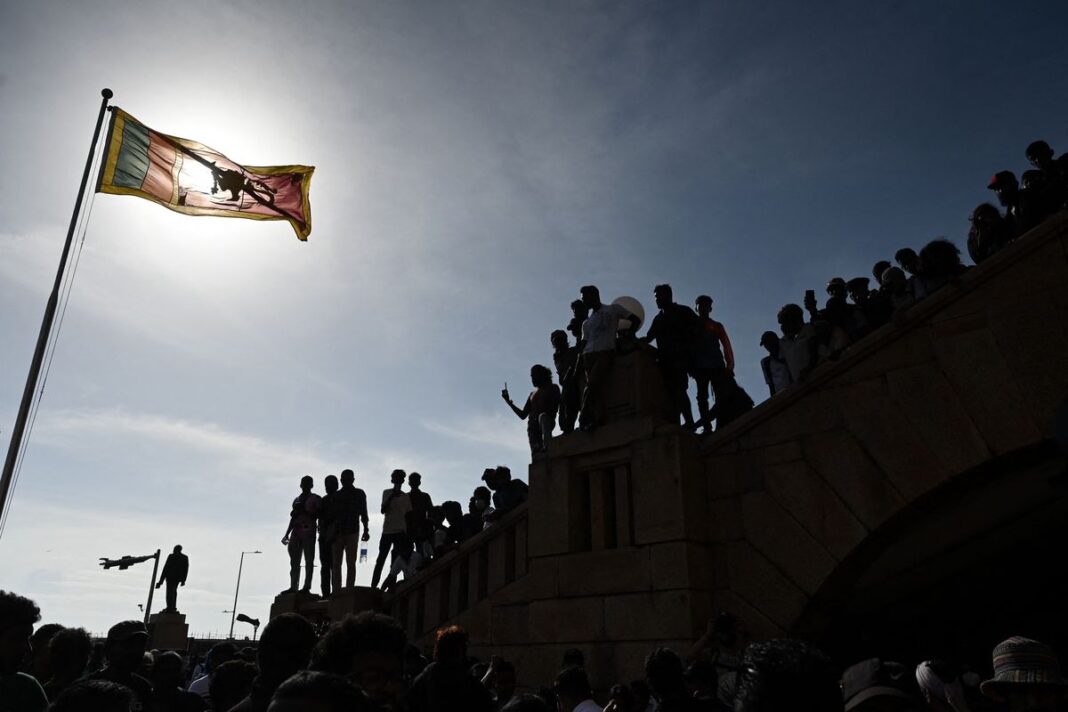Sri Lanka is facing tremendous challenges.
The country is still operating with depleted reserves and no access to international capital market, relying on exchange and capital controls, and rationalizing fuel and electricity usage. Economic and financial conditions remain fragile with FX shortages in the banking system, an unsustainable public debt, and high inflation amid a severe recession. The authorities started implementing economically and politically challenging policy actions to combat inflation, improve the fiscal position, reform energy pricing and social safety nets, and tackle corruption, setting the stage for broader reforms in bringing the economy back on a sustainable path. Swift and timely reform implementation, under strong and consistent ownership by the authorities, is critical for the success of the EFF-supported program.
Program Risks:
Risks to program implementation are exceptionally high, given the complex debt restructuring process, unfavorable external environment, elevated risks of
persistently high inflation, and challenging political and social situation. Given Sri Lanka’s weak track record of reform implementation, the program runs significant risks of
slippages regarding fiscal consolidation, revenue mobilization, and reserves buildup. A deeper crisis induced by a further economic fallout, the weakened banking sector,
exchange rate pressure, and loss of market confidence could also complicate program implementation. In this regard, contingency plans are crucial and policies should remain
agile to adjust to the evolving circumstances.
Large uncertainty and downside risks remain.
Downside risks should be mitigated by restoring confidence and macroeconomic stability, addressing key corruption vulnerabilities, and boosting potential growth through structural reforms. Contingency planning for additional policy actions is also critical .
External risks associated with intensification of regional conflicts, supply disruptions, and renewed surge in global commodity prices could induce further exchange rate depreciation and runaway inflation. A global growth slowdown, further exacerbated by systemic financial vulnerabilities, could weigh on exports and the recovery.
Domestic risks could arise from renewed social unrest and political instability triggered by public dissatisfaction arising from reform fatigue and alleged corruption. Sri Lanka’s weak track record for reform poses an additional risk. Given elevated upside inflationary pressure, the risk of persistently high inflation is significant (¶20). FX liquidity shortfalls or sharp deterioration of banks’ asset quality led by the sovereign debt restructuring or macroeconomic shocks could trigger banking sector stress with severe repercussion to the broader economy. Risks related to program implementation are discussed in .
• Upside risks could materialize from a faster than expected growth recovery led by stronger tourism and FDI.
Reducing Corruption Vulnerabilities
Strengthening Sri Lanka’s governance and anti-corruption framework is crucial to restore and sustain long-run economic, social, and political stability. Given governance
weaknesses in several state functions and a high level of corruption, a reform agenda should be developed to combat corruption, improve SOE governance, leverage e-government platforms for revenue collection and expenditure management, ensure public sector transparency, and strengthen the Anti-money laundering/combating the financing of terrorism (AML/CFT) framework (Annex VII).
• Governance diagnostic. An IMF governance diagnostic mission has started to assess Sri Lanka’s governance and anti-corruption framework. The diagnostic report will be published by September 2023 (structural benchmark). The report’s findings will help identify specific priorityand time-bound reforms to be implemented under the program.
